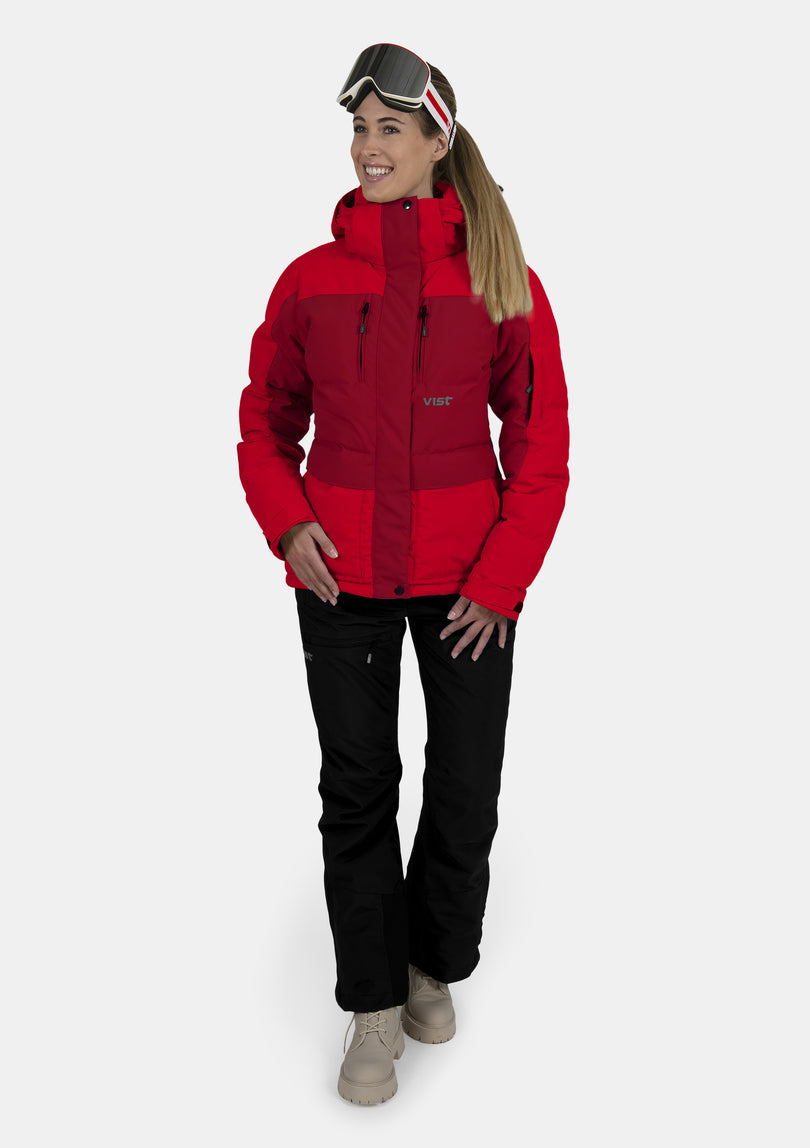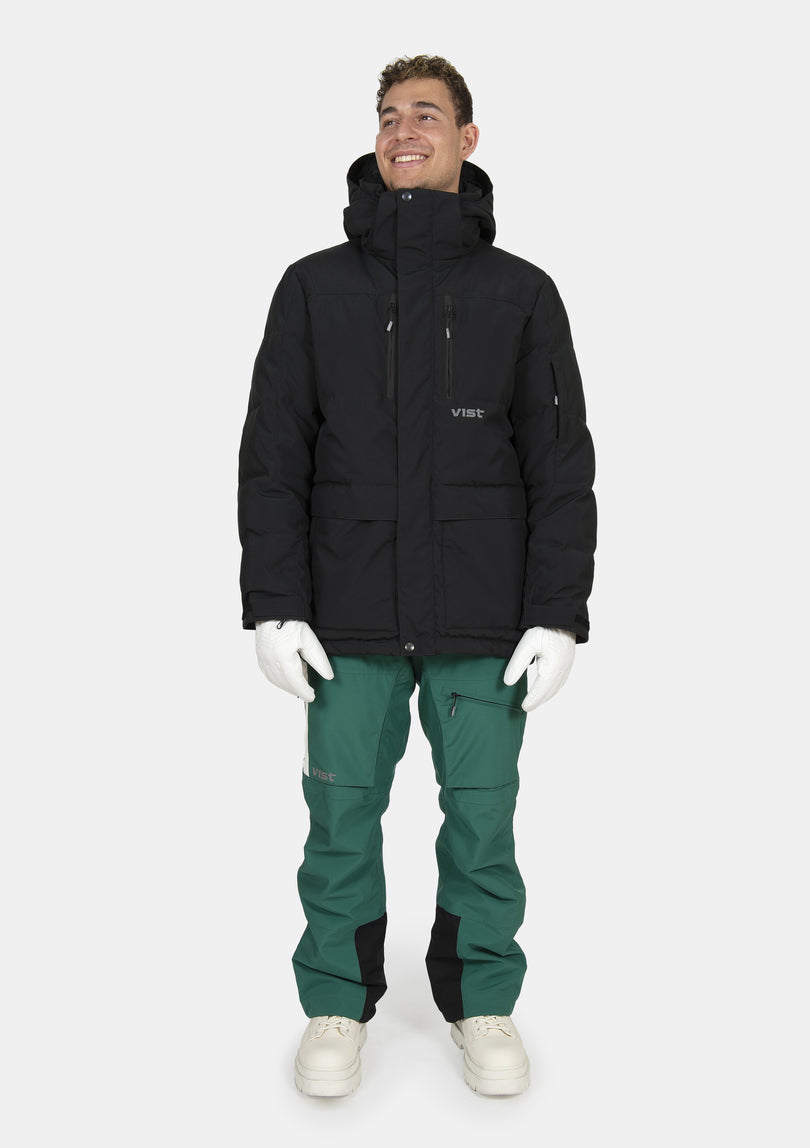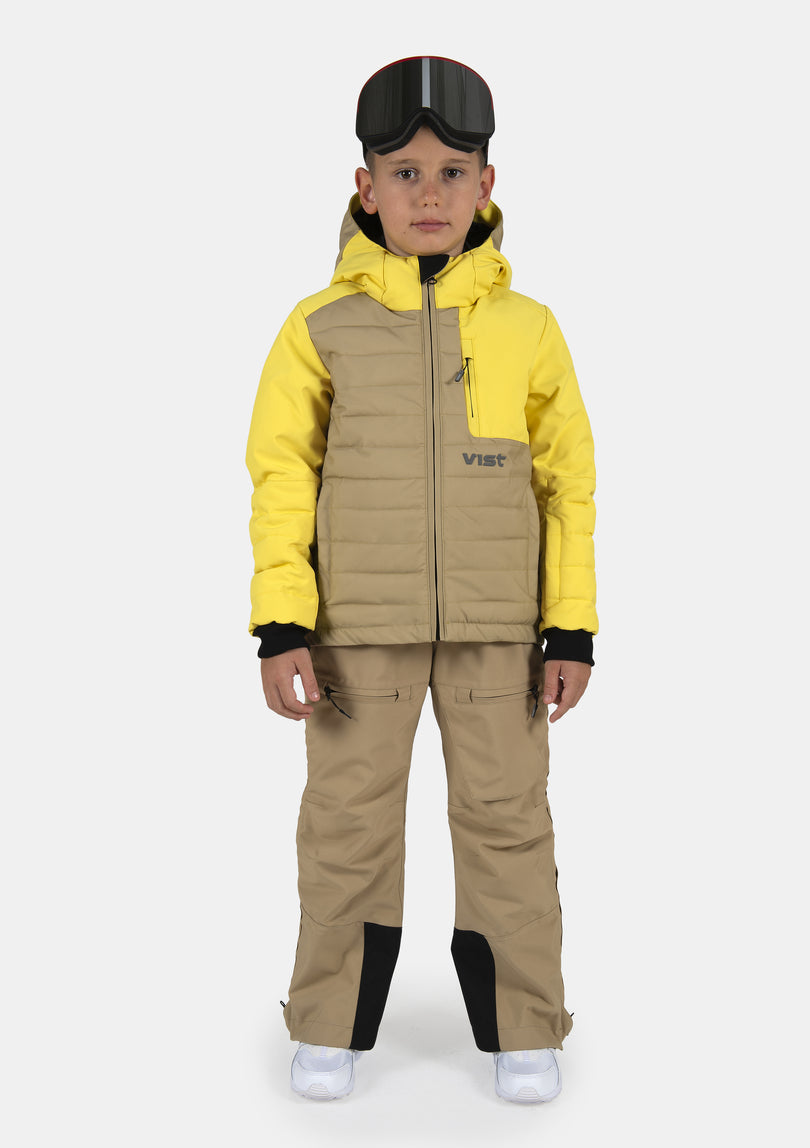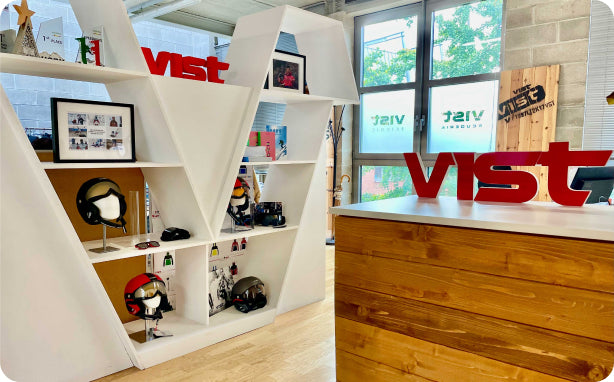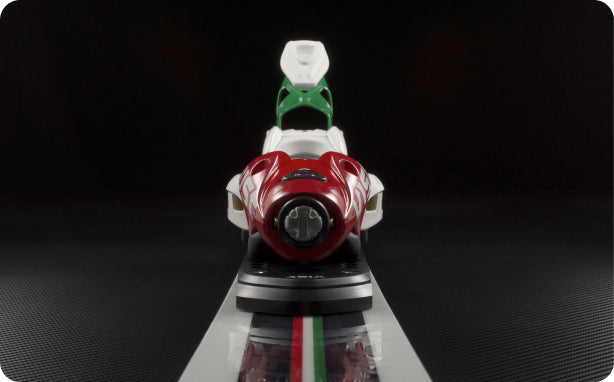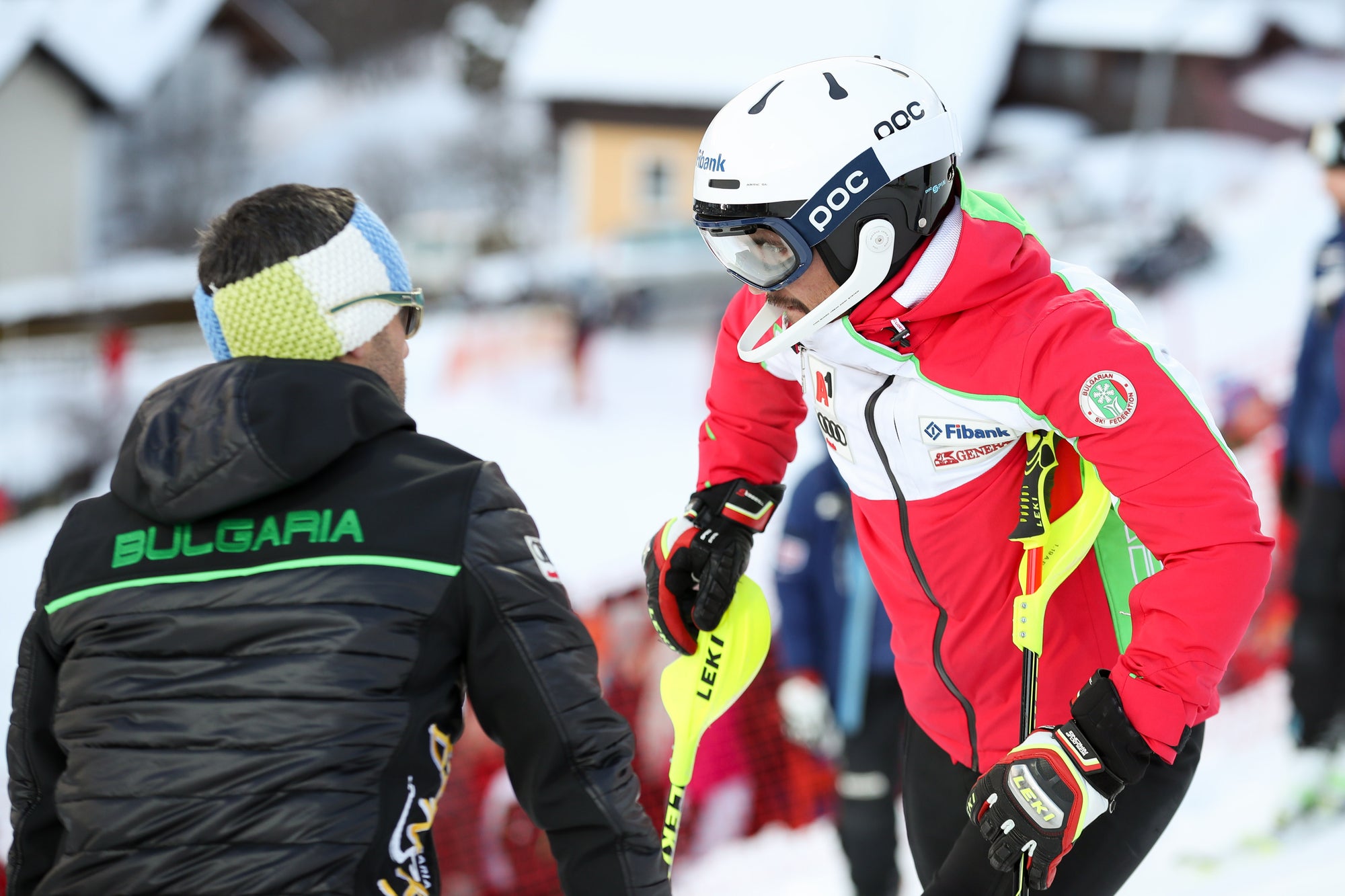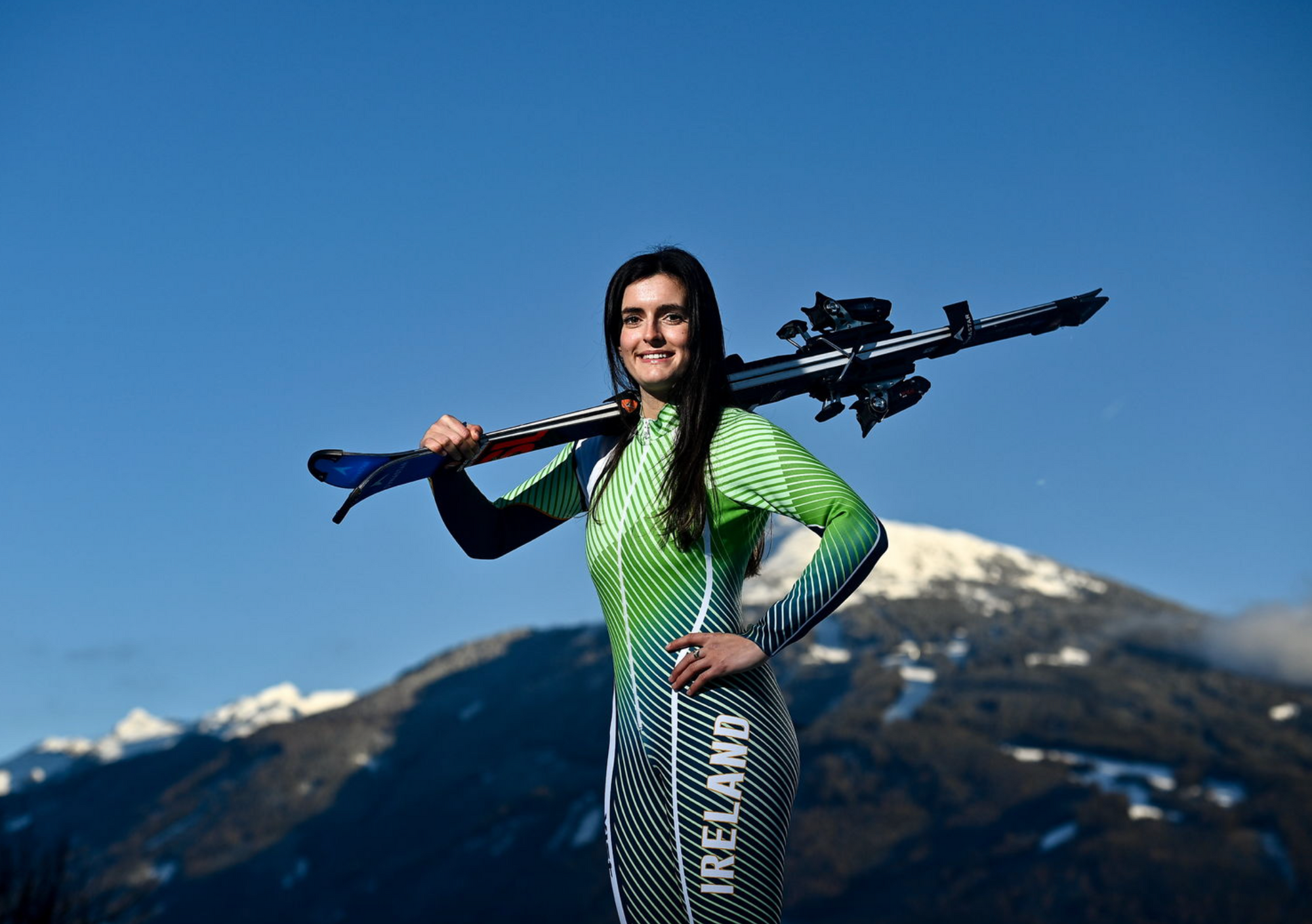Following a training session on the dry slope with the athletes of the Magoni ski academy in August 2022 in Selvino (Bergamo, Italy), our VIST team got an opportunity to catch and have a conversation with one of the most successful ski coaches Livio Magoni and his sister, the Olympic champion in Sarajevo-1984, Paoletta Magoni. In this episode, we share an interview with Paola. To read an interview with Livio, please follow the link here.
Paola, let’s talk about you. You became an Olympic champion at the age of 19. Tell us about your path to the gold medal and what was in your opinion the secret of your victory.
Paola: “Well, I would say the road was very long and also quite difficult. When I joined the team, I was still very young and all the other girls were much older than me, so the training environment was a bit difficult for me, but I was lucky to have a coach who followed me right from the start. Fortunately, he had joined the team at the same time as me and therefore, he was a bit of a second father. Also, I have always been a very determined person. My goal was to become a professional skier and despite a few difficulties, I was able to achieve my goal.”
Did you always know you would become an Olympic champion?
Paola: “I remember that when I was little – I was in elementary school, so I was really young – we were asked to write an essay on what we would like to do as adults and I wrote that I wanted to be a skier.”
When did you realise you could compete for the gold medal?
Paola: “I don’t know. That year in 1984, I actually had… I had a good start, good results during the runs. I had never finished both runs in a World Cup the way I wanted. Let’s say I arrived first in the first run and then I made mistakes in the second one, or vice versa, I skied poorly in the first run and then got an advantage in the second one and so on. So, I felt that I was skiing well. Also, the days before the Olympics in Sarajevo I was really skiing well, I had very good timing in slalom and that gives you a boost to your confidence. The days before the race I was feeling in such great shape, so I was also lucky that I reached the peak of my seasonal level of fitness right in time for the big event.”
What goals had you set for yourself for the Sarajevo Olympics?
Paola: “Actually, as I am a very reserved person, I didn’t really pay much attention to the fact that it was the Olympics, or even years later, the World Cup or the Olympics again. I mean, I was very relaxed. I knew that I had done a good job and that I had worked hard for four years, very hard, not just on my level of fitness as I said before, but also on my mental preparation.”
How did it feel to become an Olympic champion at such a young age?
Paola: “At that time, when I raced, athletes tended to be much younger, just think that I was 25 when I retired from skiing. Things were much different from today. I never had any problems or issues with my age. I did not give much thought to it because, as I said, I was very determined despite the fact that I was… very young, I never really worried about this.”
Do you remember how you dealt with your emotions? An event such as slalom with two consecutive runs is very difficult mentally. Also, do you remember what happened that day?
Paola: “Well, I remember that day very well because… of course, these kinds of days are always a bit special, unique, don’t you think? Ahem, strangely enough, I have always been a kind of person that focuses a lot on the race, I did not let external events distract me. Actually, at the end of the first run I came in fourth with only 0.16 sec behind, we were all close to each other, so I said to myself, it is now, either I do it this time or I will never be able to. So I focused on that goal and I put everything I had into it, and then I won with 0.99 sec ahead on the second, it is almost a full second, that is a lot in slalom. I did it.”
Are you superstitious?
Paola: No, not really. I was never superstitious and still today, I am not.
How did sport affect your life?
Paola: Well, in many ways. I was born in a family where sport was the absolute priority, then I had my career, but also in my work I have always worked in the commercial field, but always related to sports items. Sport has affected all parts of my life.
You are the co-founder of the Magoni Ski Academy: what is your role in the team?
Paola: “Well, I haven’t really understood my role yet because it is not always easy to guess what Livio wants. Let’s say I do everything. When the kids need something, you take them there, you bring them back, you do this, you do that, or anyway, every time they need me, I am available, because I still like the goal. I like seeing young kids who work hard, who want to achieve something. So, this is already enough for me: to be surrounded by people who really want to train, who are ready to sacrifice part of their lives to achieve something.”
Did you ever feel that you could potentially become a trainer just like your brother?
Paola: “Well, so, in this specific sector, being a female coach can be a bit complicated because it is a sport where practically they are all men. In some respects, though, I think that women have greater sensitivity and many times maybe the athletes… you need to be a good coach technically and everything, but also you need to be like a psychologist for them. You see, understand what is happening, understand, I mean, you have to take into consideration the psychology of the athlete who is in front of you. So, in some respects, it would be a bit complicated now because you need to start working as a coach when you are young, but I would have liked maybe to be a coach assistant, not really the coach, so that I could deal with the psychological aspect, see… because that is what I felt was missing when I was an athlete, that is, I did not have a person who understood me and helped me with my difficulties. I had to deal with them on my own because there was no… the coach was just a coach who taught you how to ski and taught you how to go as fast as possible. In my opinion, now more than ever, athletes also need to have someone who listens to them, who understands them, because there are some days when you are training but perhaps it is, in inverted commas, “useless” as you are not in the right state of mind. You are not there with your head and then maybe you need a day off and it has to be the coach who must understand that. Even though training is essential, there are those days when you are not at ease; you get out of bed on the wrong side and no matter what you do, you are not able to be in the right mood and the coach should understand that. And we, women, are a little more sensitive to these aspects.”
I would imagine they look at you as a role model and a champion. What would your advice be to young athletes who want to achieve success?
Paola: “Look, my advice – I think it is the right one – is to see whether you have done everything you can. I mean, at the end of the day every boy or girl should ask themselves, “Have I done my best today during my training?”. If the answer is yes, as they know themselves and their abilities, it means that they have achieved a goal, even if then they do not end up winning. That is, do not leave anything to chance, train at your best every day, try to work as hard as possible because in the end it’s not like everyone can win. Whether it’s the Olympics, a World Championship, a World Cup competition, only one wins. It is an individual sport, it is not a team event, so… the right question to ask yourself is, “Did I do my best?”. If you answer yes, you have already achieved your goal.”
What has changed between the role of female athletes during your time and today?
Paola: Things are different, in particular regarding sponsors; there were not so many sponsors at that time. In my day, for example, I only had two sponsors: the brand of the skis that I was using and a personal sponsor that you wore on your head, while now there is much more interest in women’s competitions and so female athletes also have more supporters. So, this is quite important because this sport is not cheap, you know, if you have a few sponsors that help you, you have already dealt with a large part of the problems.
Has also the number of women compared to men changed, or is it the same as thirty years ago, I mean, are there more women who decide to practise Alpine skiing?
Paola: “No, actually the number has gone down. This is a problem because there are fewer women who are willing to make sacrifices and so there are much less women who enter the World Cup compared to my days. For example, I remember that in Italy, in order to participate in the Olympics or the World Championships you had to go through selections, so based on your results in the competitions you would be selected for the Olympics. Now they just send whatever athlete they have as it’s not like they have much choice. The number of young athletes has decreased a lot, to say the least.”
What projects do you have for the future?
Paola: “Well, I would like the team to become bigger, but always adhering to Livio’s idea, I mean, I don’t want it to be a team with many athletes and a few coaches. It must be a team with athletes and one/two, one coach every two athletes, three at the most. This way we can really work on technique, something that they don’t do in other teams because there are too many athletes and few coaches. We would be a bit like the flagship team in the skiing world.”
Capable of providing quality training.
Paola: “Exactly, yes, yes, yes.”
I heard that they have made a book about Sarajevo during the 1984 Olympics, will you attend the presentation?
Paola: “Yes, we did. They told us that they made this book, wrote this book and it is precisely about the city of Sarajevo before, during, and after the Olympic event, everything that revolved around Sarajevo. It is a very interesting thing that I liked a lot as an idea, sure, it is a very nice project as far as I am concerned.”
Did you go to Sarajevo for the presentation?
Paola: “No, not to Sarajevo. However, there is a plan to go because Sarajevo has been recommended and all the… everyone who is involved in it would like to organise a European Cup also in Sarajevo, in Jarorina, and so I will certainly do what I can to support this project.”
This is also one of the objectives that your brother said, supporting countries with small nations, because there are so many beautiful mountains also in Jarorina and Bosnia and they need promotion. I think that you as a model could be of great help to these people, young athletes.
Paola: “Yes, because in those countries where the sports federations are very small, unfortunately there is also a lot less money and so, helping these athletes, these federations is also a nice thing. Maybe a promising athlete acquires visibility regardless of their result, but even just being able to teach an athlete to ski well and take part in some events during the world cup, it is already an important result. Then, as I said before, it is not like everyone can win but since this sport is a sport that needs big sponsors, it is always nice if you can give your contribution.”
We have already asked Livio that Vist is a technical sponsor for the team, what does it mean for you to work with an Italian ski clothing brand?
Paola: “Well, first of all because I felt immediately in tune with Vist as a company, plus, of course, the level of their products which I also tested personally as I am also a ski instructor in my free time, etc. They keep you very warm and so, as we women always feel a little cold, it is great to have nice warm jackets. Basically, you know, it always comes down to the fact that the relationship must go beyond the commercial level, it must also be a human relationship. Vist has been helping us since the first day, they immediately believed in us, in our team, and therefore for me, it is important to help Vist grow and anyway, it is already a leading company if we consider its products, so let’s just say it is going to be plain sailing for them.”
We hope that your knowledge of this sport helps us to make even better products and always improves, since the feedback and tests of experienced people are very important for us.
Paola: “Yes, yes, thank you very much”.
It was very interesting and it was an honour for us to speak face to face with an Olympic champion.
Paola: “Thank you, thank you so much.”


